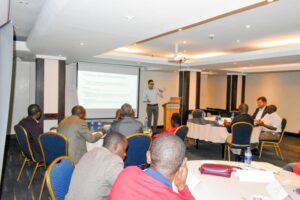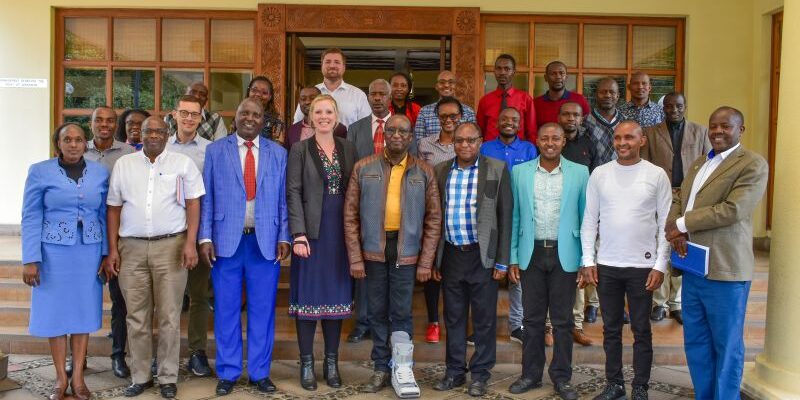 stakeholders present included State Department of Cooperatives, KUSCCO, SASRA, NACHU, CAK, CUK, Golden Chance SACCO, Narok Central SACCO, Health Partners SACCO, Cooperative Department from Nairobi County and Narok County, CIC SACCO among others.
stakeholders present included State Department of Cooperatives, KUSCCO, SASRA, NACHU, CAK, CUK, Golden Chance SACCO, Narok Central SACCO, Health Partners SACCO, Cooperative Department from Nairobi County and Narok County, CIC SACCO among others.
Golden Chance SACCO, Narok Central SACCO, Health Partners SACCO, Cooperative Department from Narok County shared their experiences on the pilot testing of the SACCO supervision tools. Among the benefits of the supervision included having centralized data bank for the SACCOs in the county, improved internal audit checks, enhanced policy implementation, improved compliance by SACCOs, improved debt management by SACCOs, improved internal and external reporting, sound decision making based on reliable and current data, standardization the supervision methodology throughout the County and strengthening the supervisory capacity
The International Consultant on Cooperative Audit, Mr. Walter Schutz, also disseminated the findings of a field research conducted in 2021 and 2022 to identify the current state of supervision and audit of small scale SACCOs in selected regions in Kenya.

Some of the findings of the study were:
- In most cases, the supervision and audit system of small scale SACCOs are not yet comprehensive enough to give a true picture of the risk situation of the SACCOs at question.
- The quality of the external annual audits is not yet of a good standard.
- Many SACCOs are non-compliant with the co-operative laws regarding the yearly audit requirements.
- There are no specialized co-operative auditors trained to fully comprehend the auditing needs of co-operatives including SACCOs.
- Lack of proficiency of supervision know-how on County level, therefore insufficient fulfilment of the responsibility to supervise SACCOs. Largely inappropriate infrastructure to conduct comprehensive supervision.
Some of the study recommendations included:
- Establishment of a uniformed and standardized information system which centralizes risk relevant information at County level. The data should
 be measurable and evaluable to allow appropriate monitoring.
be measurable and evaluable to allow appropriate monitoring. - Develop and follow a standard method of auditing small scale SACCOs nationwide.
- Development a specific cooperative training program for Co-operative Auditors
- Training and education for Co-op Officers to enable them to provide effective supervision.
- Set up an onboarding process including standardized training plan with content and timeline.
- Establish guidelines and manuals for Co-operative Officers.
The stakeholders had very positive and mind-blowing discussion around the possibility of development of the cooperative auditor curriculum which is still ongoing.






